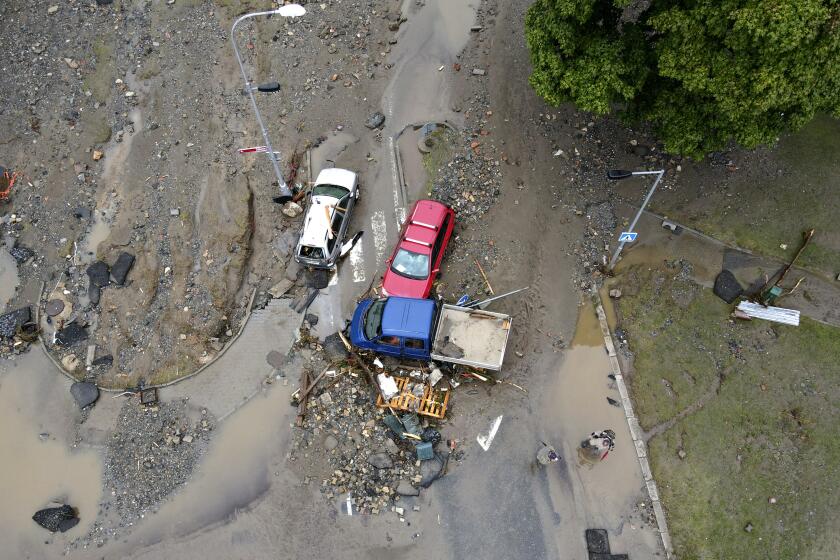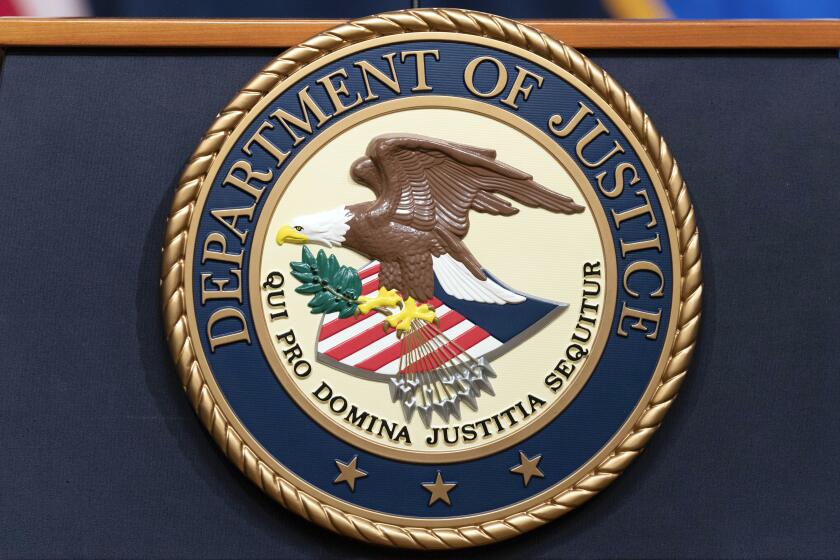Guatemala scandal centers on president
Rodrigo Rosenberg’s homemade video may have been low in production values, but it definitely has legs as a riveting political drama.
The 18-minute tape, containing Rosenberg’s startling allegations of murder against Guatemalan President Alvaro Colom, has rocked the political world here since its release May 11-- the day after he was slain by unidentified gunmen while bicycling. In the video, Rosenberg, a Guatemala City attorney, said that if he was killed, Colom and close associates would be to blame.
The case has turned into a gripping whodunit, rife with charges of political corruption and shady financial dealings. It has sparked street demonstrations for and against the president and brought into relief the remaining social divisions of a country still trying to right itself more than a decade after the end of 36 years of civil war.
Colom insists that he had nothing to do with the killing of Rosenberg, a well-regarded lawyer with close ties to Guatemala’s business elite. The president, a center-leftist elected in 2007, has said his numerous foes -- including purged police officers -- are seeking through release of the tape to destabilize the government. He has vehemently resisted calls to step down while the Rosenberg case is investigated.
The mystery of who killed Rosenberg has given rise to a host of conspiracy theories hinting at the possible work of drug gangs or right-wing extremists trying to undermine Colom. Others say Rosenberg may have unearthed evidence of wrongdoing at the country’s rural-development bank, which he charged was being used to launder money and provide funds for the first lady’s “phantom” projects.
Rosenberg said in the video message that he could be targeted because he represented a businessman, Khalil Musa, who was killed along with his daughter on April 14. And Rosenberg blamed Colom and his circle for their deaths. He named the president’s wife, Sandra Torres de Colom, and two top presidential aides.
Reports have circulated that the video, which Rosenberg made with the help of a journalist a few days before he was gunned down, began to be shared even before his death, leaving a long list of potential killers.
The killing has evoked the often-violent political intrigue of Latin America’s past at a time when Guatemala and many of its neighbors are tentatively building democracies, said Victor Galvez, who heads the political science department at the Jesuit-run Rafael Landivar University here.
“This represents an old, Machiavellian way of practicing politics that in the 21st century shouldn’t exist,” Galvez said. “It pushes buttons of death, corruption, manipulation, opportunism.”
To many here, the scandal encapsulates the murky workings of Guatemala’s shrouded political system, as well as the country’s runaway violence, which left more than 6,000 people dead last year.
“There is a lot of anger,” said Silvia Arrivillaga, a 46-year-old store clerk, who said she believes Rosenberg’s allegations and wants Colom to step down.
But others view the controversy as lingering evidence of the yawning social gaps that helped feed Guatemala’s civil war, which ended in 1996.
Many who have stepped forward to demand justice are among Guatemala City’s well-to-do, while thousands of working-class residents have turned out to demonstrate in favor of Colom, many ferried on buses paid for by the government.
“There is a rivalry between the group that is of the millionaires and the businessmen and the group that is of the people,” said Alfredo Catalan, 65, who washes cars on the street in an upscale section of the capital. “There are two Guatemalas.”
Despite the heightened passions, the scandal has yet to spark unrest, even though it has dominated newspaper headlines and radio talk shows in a country with a legacy of instability and violence.
Dueling protesters at first held relatively small demonstrations in front of the presidential palace without incident. Larger gatherings that drew thousands of people were held Sunday in separate spots downtown. But there have been no mass mobilizations.
Business leaders and others have successfully appealed for calm and the international community has proved a soothing presence, commentators said. Colom, the first left-leaning politician elected to lead Guatemala in more than 50 years, has received backing from the Organization of American States and other Central American leaders.
Another reason the controversy has not spilled out of control is that a U.N.-sponsored investigative panel has agreed to take part in the inquiry.
The body, known as the International Commission Against Impunity in Guatemala, headed by a highly regarded Spanish prosecutor, is generally viewed as neutral and trustworthy. Residents believe in it far more than they do in their own prosecutors, who have an abysmal record of bringing killers to justice.
“It has generated confidence that this would be an impartial investigation,” said Mario Merida, a security analyst and newspaper columnist.
Leaders of the military, which once ruled Guatemala and is closely watched at delicate moments, have stayed in the background, making it clear that their only role this time would be to defend the constitution. The statements have taken the air out of concern that the scandal could provoke a military coup.
Colom’s foes have asked Congress to strip the president of official immunity from prosecution while pressing him to step aside. Guatemala does not have an impeachment process.
But the president’s opponents also have broadened their message by including wider concerns, such as reducing violence and reforming the nation’s deeply troubled justice system.
The Congress on Thursday approved a bill that would open to greater public scrutiny the system for naming judges, who have previously been picked from lists drawn up by interest groups.
Galvez, the political science professor, said the crisis could galvanize support for long-needed reforms of the court system and criminal investigations.
“This makes it possible to think of a solution to the crisis that is positive for the country,” he said.
--
More to Read
Sign up for Essential California
The most important California stories and recommendations in your inbox every morning.
You may occasionally receive promotional content from the Los Angeles Times.










